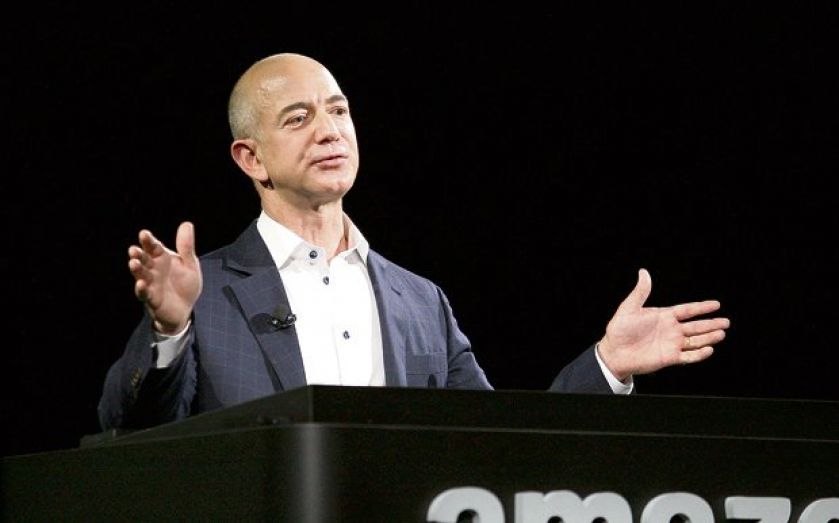| Updated:
Lessons from the career of Amazon’s Jeff Bezos

The remarkable success of Amazon’s founder shows the value of always asking “why”.
Amazon recently turned 20, and Jeff Bezos, its founder and chief executive, can stake a fair claim as one of the most influential entrepreneurs of his generation. His company has reshaped the way books, clothes, electronics and thousands of other goods are sold, bringing in $74.45bn (£43.36bn) of revenue in 2013. But he can also be a notoriously quirky boss, setting extremely high expectations of staff, and making use of a unique array of management techniques. Here are three of them.
1 NICE ISN’T ALWAYS BEST
Former executives have described Amazon’s working culture as “deliberately adversarial”, and “brutally Darwinian”. The company’s former manager of consumer behaviour research, David Selinger (who now runs a personalisation startup called RichRelevance), said last year: “I would go home and throw stuff. One of my roommates was on a team where 20 people did the work of 300 engineers. We were all always on pager duty.”
Judging from these reports, it would be an understatement to say that Bezos is a demanding boss. But it’s beyond doubt that the Amazon pressure cooker delivers results. The “Darwinian” atmosphere seems to mean that only the very best ideas survive – proposals are relentlessly scrutinised, and stacks of supportive data are always regarded as a necessity. Speaking at a panel event last year, former Amazon head of supply chains Nadia Shouraboura said, “when everybody’s arguing and fighting and not afraid to talk, the end decision will be the best one.”
2 REGRETS ARE FOR LOSERS
Bezos left a well-paid Wall Street job to embark on his career as an internet entrepreneur – a decision many would agonise over. But Bezos uses a decision-making model that made it the obvious choice. It’s called the “regret minimisation framework”, and he explained how it works years later: “I knew that, when I was 80, I would never think about why I walked away from my 1994 Wall Street bonus”, but “I might sincerely regret not having participated in this thing called the internet.”
It’s a sentiment also evident in Amazon’s business strategy. If most tech firms are wary of stagnating, Bezos & co seem positively terrified of missing out on the “next big thing”. Amazon’s personalised store recommendations were introduced while its competitors were still getting to grips with the idea of e-commerce, and the company has since been an early investor in enterprise cloud technology, warehouse robots and, more recently, delivery drones. Bezos himself has even ventured into the space exploration business.
3 “WHY?”
Bezos obsesses over customer feedback, and while other billionaire chief executives might give individual complaint emails at best a cursory glance (assuming the messages even get that far), Bezos sees individual grievances as part of the wider corporate system – he has to get to the bottom of everything, finding a suitable answer and resolution.
All four guests at a Churchill Club question panel event for former Amazon executives last year recalled the famous “escalation email”, in which Bezos forwards a customer complaint or question along with nothing but a question mark. It’s related to a wider strategy that insiders call the “five whys”.
Former employee Pete Abilla (who lists his time at Amazon under the job title “Survivor” on his LinkedIn page) remembers Bezos using the strategy to get to the root cause of an injury sustained by an Amazon factory worker.
He started with, “why did the associate damage his thumb?”, and kept questioning until the issue had been traced to the root causes – inadequate safety training, and a lack of tables in the workplace. Employees and competitors alike attribute part of Bezos’s success to this relentless questioning.
Preemptive task manager
Free
The issue with some productivity apps and task managers is that you have to spend time inputting the information in the first place – you have to “remember to remember”. EasilyDo gets around this issue. It preempts possible tasks (would you like this person added to your address book?) and finds route information without being asked to do so.